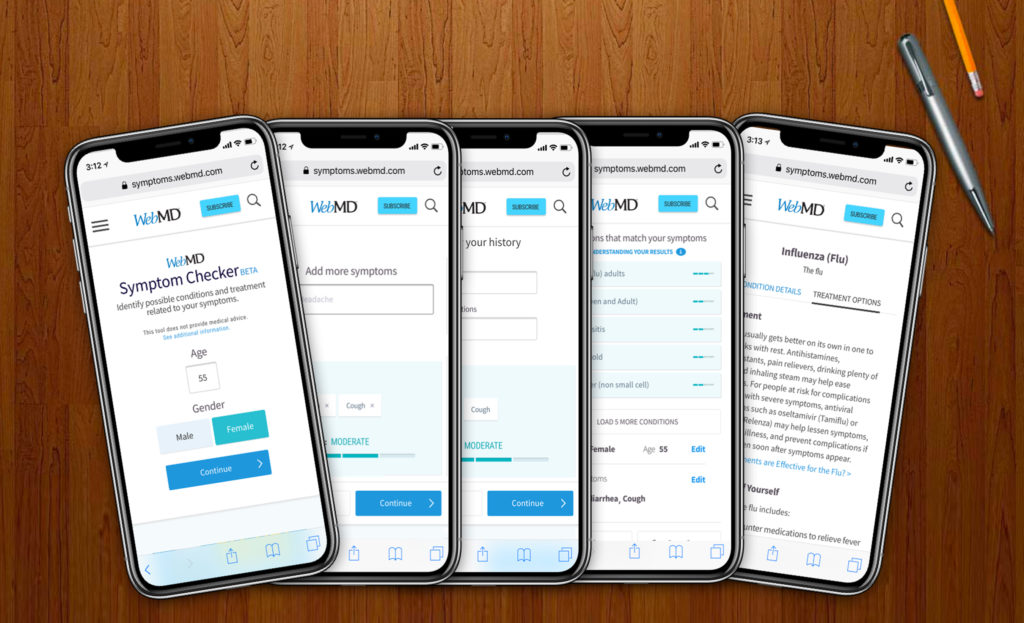Pfizer Promises $11 Billion for Array BioPharma and its Portfolio
 The pharma giant agreed to a steep price for Array and its portfolio, getting their two promising, clinical-stage colorectal cancer drugs in the deal. The two drugs are expected to be successful, as was the company’s first commercial drug, Braftovi + Mektovi, which was approved to treat BRAF-mutant melanoma, the deadliest form of skin cancer. The drug launched in July of last year and reeled in almost $72 million in its first three commercial quarters.
The pharma giant agreed to a steep price for Array and its portfolio, getting their two promising, clinical-stage colorectal cancer drugs in the deal. The two drugs are expected to be successful, as was the company’s first commercial drug, Braftovi + Mektovi, which was approved to treat BRAF-mutant melanoma, the deadliest form of skin cancer. The drug launched in July of last year and reeled in almost $72 million in its first three commercial quarters.
Pfizer, like many pharma companies at the moment, is bolstering its cancer therapy portfolio as the market continues to explode. According to EvaluatePharma, global cancer drugs are projected to reach $237 billion in 2024, up from $138 billion this year, and large pharma companies are looking for a way in. Just this May, Merck acquired Peloton Therapeutics Inc. for about $1 billion while Eli Lilly recently closed an $8 billion deal for Loxo Oncology.
Cognizant Acquires Major Ireland-based Tech Solution Company
The leading global digital solutions company has acquired Ireland-based Zenith Technologies, a company specializing in implementing digital technologies to manage, control, and optimize drug and medical device production for maximum operational efficiency and regulatory compliance. The acquisition is expected to help Cognizant achieve its strategy to implement interconnected “smart factories,” or end-to-end operational and information technology systems for connected biopharmaceutical and medical device manufacturers. The company’s services are increasingly coveted as production systems and processes become more complex due to research advances and increased demand for large-molecule biologics.
“In joining Cognizant, we are bringing together two respected life sciences service provider brands with complementary technology and manufacturing operations expertise,” says Joe Haugh, Chief Executive Officer, Zenith Technologies. “It’s an exciting time for us, with the life sciences industry embracing digital transformation to enable more flexible and efficient manufacturing facilities to bring new treatments to market faster. Our combined business will drive process excellence through tighter integration of manufacturing processes and systems, the efficient harnessing of information and analytics across the manufacturing value chain, and the adoption of IoT technologies delivering manufacturing 4.0. Together, we are well-positioned to help clients more efficiently produce the life-changing medicines and medical devices for patients who need them most.” The Cognizant-Zenith Technologies expertise will deliver everything from factory design consultation, machine sensor and controller instrumentation, supervisory control, and data acquisition, to manufacturing execution systems, batch automation, enterprise resource planning integration, and managed services.
WebMD Acquires Frontline Medical Communications
 The leader in health information services has acquired Frontline Medical Communications, a medical communications company that specializes in servicing live conference events for the healthcare industry. WebMD’s Medscape, top provider of digital news, information, and education for physicians worldwide, will combine with Frontline’s first rate web and print engagements.
The leader in health information services has acquired Frontline Medical Communications, a medical communications company that specializes in servicing live conference events for the healthcare industry. WebMD’s Medscape, top provider of digital news, information, and education for physicians worldwide, will combine with Frontline’s first rate web and print engagements.
Bob Brisco, WebMD CEO, states, “With Frontline, we are building on our commitment to deliver meaningful and relevant content to clinicians exactly where they are and via the channels they prefer.” The companies plan to combine their expertise by integrating products and platforms while operating independently.
Google and Sanofi Team Up to Create Innovation Lab
 The big-name pharma company and Google are collaborating to develop a virtual Innovation Lab that will revolutionize the way Sanofi and all therapy developers produce new medicines and health services. With this new technology, Sanofi aims to achieve a better understanding of patients and diseases, increased operational efficiency, and an improved experience for patients and customers.
The big-name pharma company and Google are collaborating to develop a virtual Innovation Lab that will revolutionize the way Sanofi and all therapy developers produce new medicines and health services. With this new technology, Sanofi aims to achieve a better understanding of patients and diseases, increased operational efficiency, and an improved experience for patients and customers.
Ameet Nathwani, MD, Chief Digital Officer, CMO & EVP, Medical at Sanofi, said in a statement, “Combining Sanofi’s biologic innovations and scientific data with Google’s industry-leading capabilities, from cloud computing to state-of-the-art artificial intelligence, we aspire to give people more control over their health and accelerate the discovery of new therapies.”
Google will deeply analyze their data to better understand key diseases and extract related patient insights. With this information, Sanofi will be able to research and develop more personalized treatment methods and identify accompanying technologies that may improve health outcomes. The main goal of the Innovation Lab is to pinpoint what treatments work for patients in order to improve the ability to offer personalized treatment advice, thus optimizing patient care and reducing healthcare costs.
The companies plan to integrate AI into their processes to take into account real-time information as well as geographic, logistic, and manufacturing constraints to help the accuracy of these complex activities.
“Life sciences companies are looking to data-driven, digital innovation to help fuel the creation of accessible healthcare solutions,” said Thomas Kurian, Chief Executive Officer of Google Cloud, in a statement. “We look forward to collaborating with Sanofi to help accelerate the cycle of healthcare innovation to populations throughout the world.”
PoC3 Releases New Verification and Valuation Guidance
The Point of Care Communication Council (PoC3), the nonprofit that advocates for effective point of care that improves health outcomes, announced the release of its Draft Version 2 Verification and Validation Guidance for open comment. This new Draft Guidance was created by the PoC3 Verification & Validation Committee, comprised of leaders within multiple POC media companies and auditing companies.
Among those companies is Placebridge, which is the latest company providing auditing services to join the member ranks of PoC3. Other members of the committee include The Alliance for Audited Media (AAM) and BPA Worldwide, both of which joined PoC3 in late 2018. Additionally, the Draft guidance was also influenced greatly through collaboration with the PoC3 Industry Advisory Council, which includes elite senior leaders across pharmaceutical companies, advertising agencies, and other key stakeholder companies.
“PoC3 is focusing heavily on advocating for guidelines in the POC advertising space, now and into the future,” said PoC3 Co-Chair Mike Collette in a statement. “This is an industry priority and an opportunity to advance the point of care marketing channel as it continues to grow at an accelerated pace.”
The Draft Guidance will be accessible on the PoC3 website (www.poc3.org/draft-verification-validation-guida) and had been open for comment until Tuesday, July 9. Following July 9, PoC3 will publish a summary of comments received along with a formal response. The final PoC3 Version 2 Verification & Validation Guidance will be published later this summer.
“Within this new version of the Verification & Validation guidance, we are creating a clear path for POC media companies to become ‘PoC3 Certified,’” said PoC3 Co-Chair Eric Jensen in a statement. “This will enable the buying community to see consistency in guidelines followed across POC companies. PoC3 is excited to bring this important process forward for the industry.”
Mallinckrodt Pharmaceuticals Wrapped Up in Medicare Kickbacks Scandal
 The U.S. Department of Justice has filed a lawsuit against Mallinckrodt Pharmaceuticals for paying illegal kickbacks in a scheme involving a 97,000% drug price hike. U.S. Attorney William McSwain demanded a jury trial when Mallinckrodt’s anti-inflammatory drug Acthar, a popular treatment for babies with a debilitating seizure disorder and for patients with multiple sclerosis, rheumatoid arthritis, and kidney disease, went from $40 a vial in 2000 to nearly $39,000 today. He filed his complaint with U.S. District Court for the Eastern District of Pennsylvania.
The U.S. Department of Justice has filed a lawsuit against Mallinckrodt Pharmaceuticals for paying illegal kickbacks in a scheme involving a 97,000% drug price hike. U.S. Attorney William McSwain demanded a jury trial when Mallinckrodt’s anti-inflammatory drug Acthar, a popular treatment for babies with a debilitating seizure disorder and for patients with multiple sclerosis, rheumatoid arthritis, and kidney disease, went from $40 a vial in 2000 to nearly $39,000 today. He filed his complaint with U.S. District Court for the Eastern District of Pennsylvania.
“The scheme allowed the company to continually raise Acthar’s price, yet market it as ‘free’ to patients and doctors, shifting the drug’s ever-increasing cost to Medicare,” the government stated in this complaint. “As a result of its conduct, Mallinckrodt caused the submission of millions of dollars in false Medicare claims for Acthar.”
The court can slap Mallinckrodt with fines of nearly $240 million if found guilty. The government is alleging that Mallinckrodt provided illegal copay subsidies for more than 2,600 Acthar prescriptions at a cost of roughly $23,000 a vial, or about $60 million total. The whistleblower act allows the government to claim $180 million in this case with an additional $57 million from fines of about $11,000 to $22,000 for each false claim.
Stiffing the Government
“Drug companies are not allowed to pay patients’ co-pays. That rule is designed to prevent the very thing Mallinckrodt allegedly did here—outrageously jack up Acthar’s price and leave the government with the entire bill,” McSwain said in a statement.
This is not the first time the government has scrutinized the inflated prices of the drug, one that first received FDA approval back in 1952. The pharmaceutical company reached a $100 million settlement in 2017 after the Federal Trade Commission accused the drugmaker of violating antitrust laws to stifle Acthar’s competitors.
The lawsuit comes shortly after Mallinckrodt announced a potential settlement of $15.4 million with the U.S. Department of Justice for an unrelated charge regarding its acquisition of Questcor’s sales and marketing activities.
Gilead and Nurix Collaborate on Cancer Therapies
The leading biotech company has entered a partnership with Nurix Therapeutics to discover, develop, and commercialize a pipeline of innovative, targeted protein degradation drugs for patients with cancer and other complex diseases. While Gilead will make a payment of $45 million for the option to license drug candidates directed up to five targets, the pipeline may be worth $2 billion. Nurix is eligible to receive up to approximately $2.3 billion in total milestone payments.
The Nurix technology platform aims to identify novel agents that utilize E3 ligases to induce degradation of specified drug targets. “There are many molecular targets involved in disease pathways that have traditionally been challenging to manipulate using conventional approaches,” according to Dr. John McHutchison, Chief Scientific Officer and Head of R&D at Gilead Sciences. “Nurix’ innovative protein degradation discovery technology provides Gilead with a new strategy to interrogate these drug targets.”






